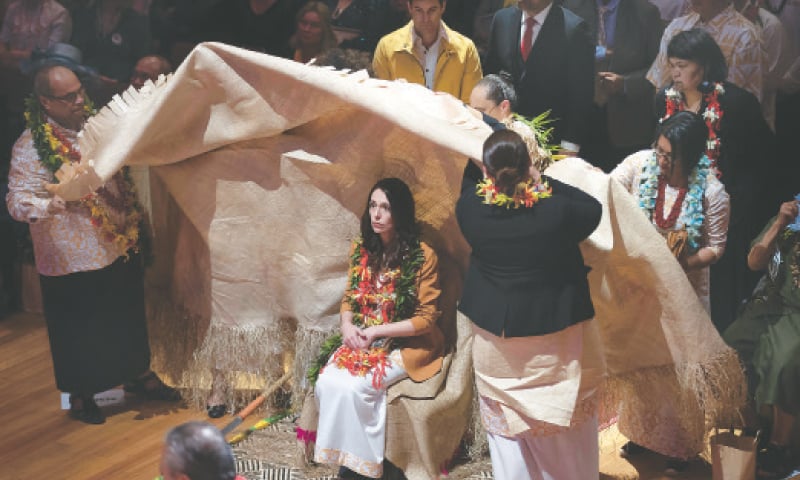MELBOURNE: New Zealand’s Prime Minister Jacinda Ardern issued a sombre state apology on Sunday to the Pacific community for racially targeted immigration raids in the 1970s that resulted in deportations and prosecutions.
The “Dawn Raids”, which often occurred early in the morning, took place from 1974 to 1976 when New Zealand’s economy was in a downturn and the government clamped down on immigrant workers from the Pacific who overstayed their work visas.
Addressing hundreds of people in attendance for the formal apology, Ardern said members of the Pacific communities continue to “suffer and carry the scars” of the raids in which they were specifically targeted and racially profiled.
“Today, I stand on behalf of the New Zealand government to offer a formal and unreserved apology to Pacific communities for the discriminatory implementation of the immigration laws of the 1970s that led to the events of the Dawn Raids,” Ardern said.
The government will provide millions of dollars in scholarships to the community
“The government expresses its sorrow, remorse, and regret that the Dawn Raids and random police checks occurred and that these actions were ever considered appropriate.”
As part of its formal apology, Ardern said her government will provide NZ$2.1 million ($1.5m) in academic and vocational scholarships for Pacific communities and $1m in leadership scholarships for young people from Samoa, Tonga, Fiji and Tuvalu, among others.
Sunday’s event included an Ifoga, a traditional Samoan ceremony in which people ask for forgiveness or receive forgiveness, where some ministers and members of parliament draped a mat over Ardern, which was then removed by members of the Pacific community.
“There were no reported raids on any homes of people who were not Pacific; no raids or random stops were exacted towards European people,” Ardern said during her apology.
Pacific people comprised a third of over-stayers but represented 86 per cent of prosecutions, while Britons and Americans in New Zealand — who also comprised a third of over-stayers — saw just 5pc of prosecutions in the same period.
While the crackdown took place nearly 50 years ago, Ardern said they remained vividly etched in the memories of those affected and “lives on in the disruption of trust and faith in authorities”.
Minister for Pacific Peoples William Sio, who emigrated with his family from Samoa to New Zealand in 1969, described the raids as “racism of the worst kind”. Wellington encouraged migration from Pacific islands such as Samoa, Tonga and Fiji after World War II to fill worker shortages as the economy expanded. But those who migrated faced a backlash during the 1970s downturn, with claims they were taking jobs from New Zealanders.
Published in Dawn, August 2nd , 2021












































Dear visitor, the comments section is undergoing an overhaul and will return soon.